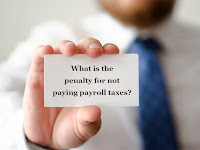The Internal Revenue Service can obtain a Canadian couple's bank records from Wells Fargo Bank to aid the Canada's investigation of their tax liabilities for a period spanning nearly a decade, a California federal court ruled in Jen (Hua Yu) Zhang et al. v. U.S., case number 3:21-cv-04655, in the U.S. District Court for the Northern District of California.
The agency can proceed with a summons to Wells Fargo for bank account information, including opening statements and wire transfer authorizations, for Jen (Hua Yu) and Charles (Zhi Yu) Zhang, U.S. District Judge Charles R. Breyer said.
The Summons Is Consistent With A Tax Treaty Between The U.S. And Canada That Allows Such Information Sharing,
And The Information Sought Is Related To The Canada’s Investigation of The
Couple’s Taxes From 2010 Through 2018,
The Judge Ruled.
The judge rejected the couple's arguments that Canada's tax investigation is improper and that the summons should be consequently discarded, finding that the court's job was only to ascertain any potential improprieties on the IRS' end.
"The court's focus is whether the IRS is acting in good faith," the opinion said. "It appears to be doing so."
The IRS summons to Wells Fargo was issued in April, following a request from the Canadian tax authorities indicating that the couple were under investigation for their taxes for the nine-year period, according to the order. The country was looking into whether they reported the correct amount of tax for those years, the court said.
The couple filed a petition in June seeking to eliminate the summons, and they have argued that Canada improperly issued the summons in pursuit of a criminal investigation.
The U.S. government, for its part, argued in a motion to dismiss that it proved it issued the documents request in good faith and that Canada's criminal investigation into the couple doesn't prohibit the summons.
In the order, Judge Breyer said the IRS could go through with the summons as it satisfied the four requirements for issuing such information requests. Those requirements include that the Canadian tax authorities don't already have the information requested, that the information is relevant to the investigation of the couple and that the IRS has abided by the required administrative steps for issuing it, according to the order.
Furthermore, there's no referral from the U.S. Department of Justice for prosecution that would bar the IRS from issuing the summons as the couple had suggested, according to the order.
Judge Breyer also found it wasn't in the court's purview to consider the couple's arguments that the Canadian authorities used the incorrect methods to obtain information in the criminal investigation, saying, "It is not this court's job to interpret Canadian law."
Have an IRS Tax Problem?
Contact the Tax Lawyers at
www.TaxAid.com or www.OVDPLaw.com
or Toll Free at 888 8TAXAID (888-882-9243)
Read more at: Tax Times blog












